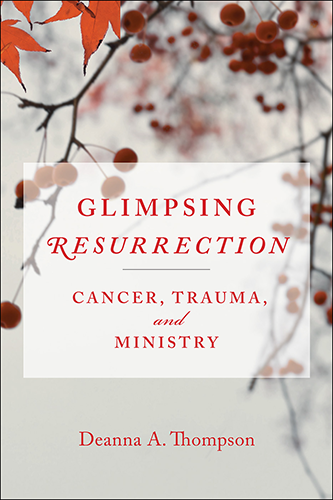Space in the Psalms for Being Undone by Serious Illness
Space in the Psalms for Being Undone by Serious Illness

At their best, religions comfort and support people in the face of suffering. But sometimes the reasons religions offer for suffering can make things worse. If religious communities are to be places where those who suffer are able to communicate the truth of their reality and receive the support they need, the religious stories we tell need to be spacious enough to hold the grief, loss, and despair that accompany traumatic experiences like living with life-threatening illness. And for Christians, one way to do this is to take on the typical storyline and let it breathe.
Most renditions of the Christian story begin with creation and the fall, then quickly move on to incarnation and redemption. But spending time in the psalms can help us see that the biblical story is less plot-driven and more complex than a tidy, linear, sin-redemption storyline often makes room for. Because Old Testament writings are Christian Scripture too (four-fifths of Christian Scripture, in fact, a reality often overlooked by Christians), prayer practices of the Psalms belong in any version of the Christian Story being told to those who are undone.
In Psalm 77, the psalmist cries out, “I am so troubled that I cannot speak.” Placing experiences of living with serious illness within lament psalms and other irresolute spaces within the biblical story allows us to explore what it means to be undone by illness before God. The central character in these biblical stories is God, the One who creates and calls human beings into relationship with the divine and with one another. It’s important to note, as preacher Thomas Long does, that questions of God’s existence are not really on the table within the biblical text. The characters in the Bible do not ask, “I am undone by illness, I wonder if there’s a God?” Instead they cry out, “O God, why illness?” These moments are important not just because they open up space for those undone by serious illness to express their grief and anger. They’re also important because they speak to God’s relationship with and response to the people enduring illness and the trauma related to it.
The psalms help us see that there is space to protest toward God, to be angry at God, to complain to God over suffering that simply is but that we desperately wish would not be. While some people who express such emotions do so because of a loss of or rejection of faith, the psalms help us see that such emotions are also belong inside the experience of faith. “I cry out and you do not answer me,” complains the psalmist in Psalm 22.21. Making more visible the spaces within religion for interrogation of God can be crucial for those who tend to view challenges to God as unfaithful. If people who are angry at God are given more opportunities to consider that their protest and anger can actually be part of a close, resilient relationship with God, they might be able to come to terms with protest as an aspect of a faithful relationship with God rather evidence of a lack of faith.
One psalm that deserves more attention by those undone by trauma is Psalm 88, the most irresolute of all psalms. The psalmist’s soul is full of troubles (v. 3), buried under the weight of isolation brought on by psychic, spiritual, and emotional distress. There are repeated petitions to God, pleading for some sign of divine responsiveness: But I, O Lord, cry out to you; in the morning my prayer comes before you. O Lord, why do you cast me off? Why do you hide your face from me? This calling God to account emerges in response to testimony throughout the biblical narrative that the character of God is One who will always present, without fail.
But the insistent questioning of God throughout the psalm indicts any attempt to cram suffering in a tidy framework. Why such suffering? Why doesn’t God respond? The questions hang suspended, unanswered.
Even though experiences of the absence of God fill the prayers of the psalms and are so ubiquitous that even Jesus himself cannot avoid them, this particular kind of affliction often fails to get the attention it deserves. Biblical testimony of human beings’ relationship to God illustrates that the experience of God’s absence is much more than a momentary phenomenon for those who are struggling. From Solomon’s testimony in I Kings that God dwells “in thick darkness” to the lament in Psalm 88 over the hiddenness of God’s face, the people of God give voice to that anguished experiences of God’s apparent silence over suffering we so wish were not a part of our lives.
Praying the psalms opens up pathways for those living with serious illness to see themselves as more than simply victims of the disease. Praying the psalms gives voice to the intense connection between the disease in our bodies and the inner turmoil of the heart. Praying the psalms gives voice to protest and anger and grief that accompanies life with serious illness, but it does so within the larger context of a relationship to the God who hears and responds to such anguished prayers. Lamenting together, to God, can open a way for the unendurable to be endured.
#WJKbooks #GlimpsingResurrection



You must be logged in to post a comment.